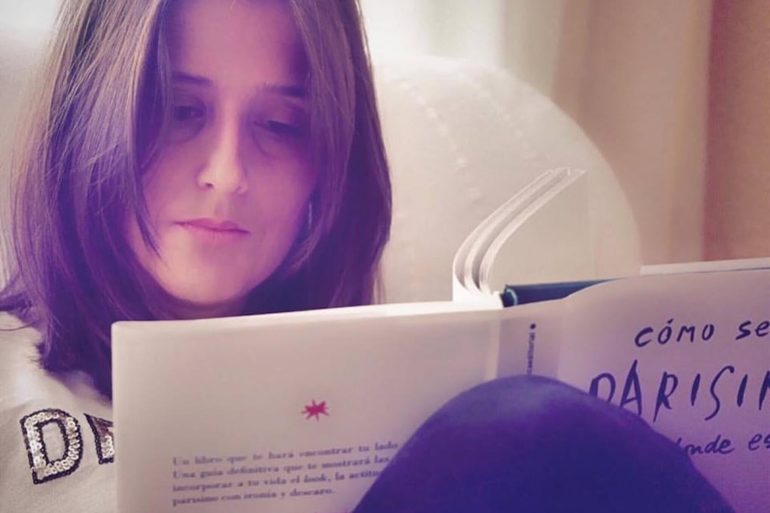And you… do you read female or male literature?
Writing is an act of confession with oneself, but also to the readers. When writers write, we blindly trust our emotions, our feelings, our thoughts and our points of view with all our readers. They say there is a difference between the way in which the writer’s work is written by men and women writers. Even some daring ones, in my view, have come to call it male and female literature. I believe that this difference is a very unfair discrimination that should not exist in the literature.
I think what makes one type of writing different from another is the person who writes it, and not whether it is male or female. There are readers who choose between reading to a writer, I am not in favor of these differences. I like to select the books I read for three reasons, which are not always the same.
Normally I select by subject: personally, I like to read a thriller, crime novel or on criminological subjects, psychology and psychiatry books, focused on pathologies related to serial killers, psychopathies and so on. I also read social research books related to organized crime, and I have even found myself reading philosophy books at times, sometimes without noticing it, also related to some historical moments or periods of war, such as those related to Nazi concentration camps. Some would say that they are hard subjects to read, but of course, from time to time, in moments of calm, falls into my hands a good book of poetry that I cannot resist or, also, those novels that tell beautiful stories without more, so necessary sometimes.
I also select the author, but I don’t look at whether he is a man or a woman, I look at his career as a writer. What things you’ve written before, your literary profile, and then I value whether I should give you the opportunity to be read. Of course, I give opportunities to new writers, and I like to read them too. There are novice writers with a resounding beauty in their texts, which is worth discovering, and yes, regardless of whether they are men or women.
Sometimes, when I discover an author who attracts me as he writes, I read his work for months, it is happening to me now with the Italian journalist Roberto Saviano, it happened with the Valencian author Maxim Huerta, with the Catalan poet Martí I Pol, with Stephen King, with Neruda, with Palahniuk, Nevill, Chandler and so on with several authors… and if I can, if my knowledge of languages makes me feel it.
Sometimes the book even selects me, but it selects me because I am seduced by the presentation of the book as such: its careful edition, its impressive cover, the editorial that I know that cares for the author… or simply the antiquity of the book edition.
Since I was little I have read books, and, perhaps because at home they never taught me to distinguish between books written by men or women, but they always motivated me to read for the sheer pleasure of reading, and that is what I still do today and I recommend always doing to everyone. I think it’s a waste of time to keep reading a book we don’t feel like or like. Reading should always be for pleasure and because it is desirable but better not to read.
However, it’s singular how even when I’m asked about a book written by a woman, I always remember a book I read as a teenager, written by the French author Marguerite Duras “Hiroshima mon amour” or a book I read a couple of summers ago, also written by a woman, the book “Shanghai Baby” by the Chinese writer Zhou Weihui. I always refer to them and I recommend you to read, without a doubt, but not because they are writers, but because they are books worth reading. Authentic literature.
Honestly, writing in masculine or feminine, I think it’s a foolishness that some people really defend. Who loves to read, who loves real literature, so much so that it is a man or a woman who writes, what is really valued is the text and its beauty, what it brings us and the moments that the text gives us.
Literature as love should not be analyzed if it belongs to men or women, but simply value it for what is literature, love.
